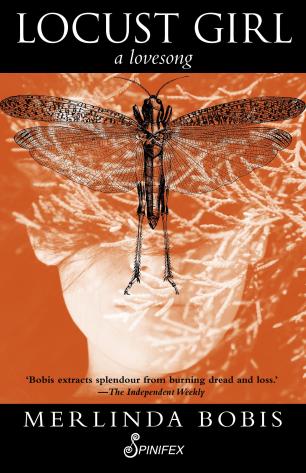Locust Girl. A Lovesong
2016 Winner

Judges' comments
Locust Girl is set in a nameless parched landscape, a place of drought, famine and human misery, reminiscent of today’s despair in Africa or the Middle East. Only here, we are taken to a post-apocalyptic stage in history. In this world Amedea, the Locust Girl, tells her story of hardship, punishment and dislocation, endured in the quest for an imagined life of freedom ‘beyond the border’. Merlinda Bobis’ original and lyrical prose confidently blends fantasy with realism, and surreal events and images with the quotidian.
Locust Girl is a transfiguring fiction that asks the reader to reflect on, and see into the hearts of, those labelled as outsiders by political systems. We are in the company of fellow creatures who have been harried, hurt and marked in ways that prevent them from ‘crossing over’. This work speaks for the right to be small yet valued, to be cared for and included. It offers imaginative resistance to the forces and beliefs that actively conspire to deny individual and common humanity. Bobis’ story resonates not only in today’s Australia but throughout an environmentally and politically disrupted world where repression and violence are rife; where huge numbers of people leave their homes to undertake dangerous journeys in the search for life.
There were many fine and stylistically accomplished works among this year's entries, but the distinctiveness, sweep and visual power of this short novel set it apart. Bobis’ fabulist, indeed fabulous, narrative enables the reader to imagine what it might look, smell and feel like to be treated as less than fully human. It asserts boldly that in a world seemingly devoid of rationality and logic, a young girl’s dream or a hallucinatory vision may well offer a means of maintaining hope, dignity and identity.